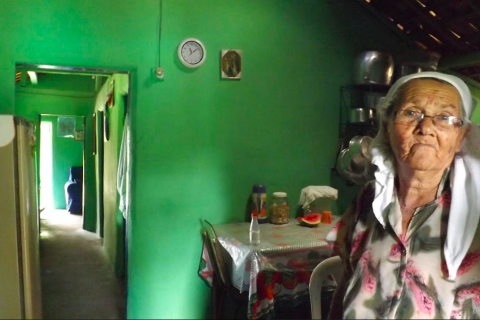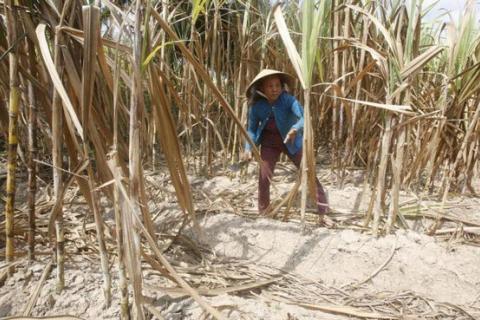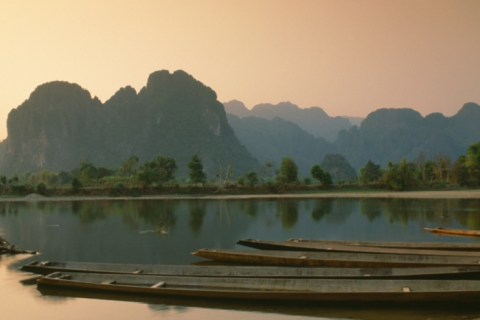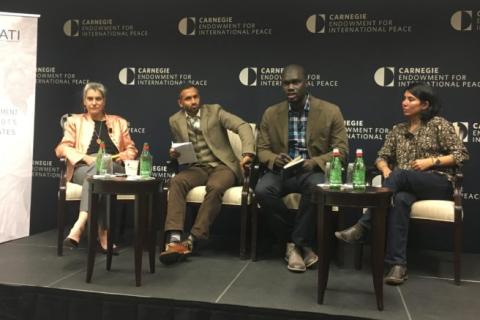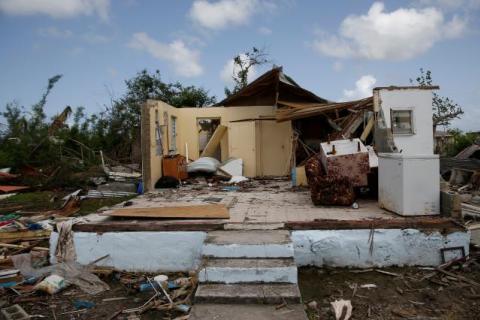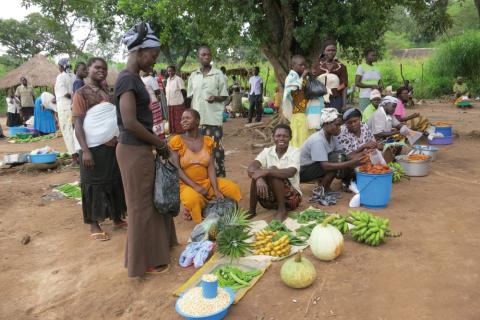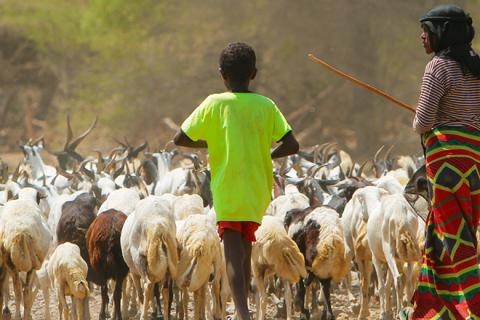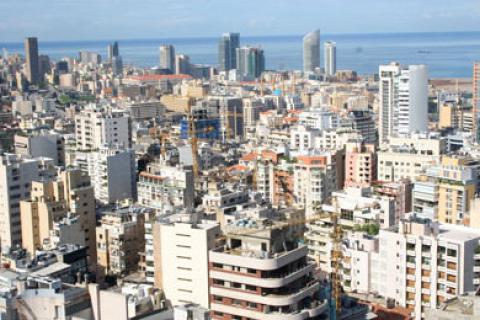
Topics and Regions
Details
Location
Contributions
Displaying 361 - 370 of 400Between Law and Reality: Understanding De Jure and De Facto Women's Land Rights in Brazil
A Q&A with Patricia Chaves from Espaço Feminista, Brazil, explains the discrepancies in accessing property and inheritance rights for women in Brazil as well as data that helps to inform grassroots women about their rights. The piece also provides powerful accounts of women's personal experiences.
Land Governance and Gender Discussed at the Second Regional Land Forum
Moderated by Kalpana Giri from RECOFTC, the panel on "Land Governance and Gender" featured a diverse round of gender experts discussing the inseparability of gender equality and good land governance. With talk of gender more prominent than ever, the session was certainly an interesting and poignant way to close out day two of the Forum!
Second Regional Land Forum opens with Data and Technology Showcase Event
The Second Regional Land Forum kicked off in Bangkok, Thailand in the early morning of May 28th and the opening session was certainly one to remember! Live drones, talk of big data and using NASA related technology to propel land rights forward, were but a few of the impressive topics on the table. Participants gathered to hear a variety of ‘flash talks’, quick yet effective pitches about notable initiatives relating to data, technology and land rights.
Conflict transformation at the Second Regional Land Forum
Sophorn Poch, Director of the Independent Mediation Organization (IMG), gives us some insights into his involvement with the Second Regional Land Forum as well as his hopes in terms of the Forum's outcomes.
Five facts about the upcoming Second Regional Land Forum
Organized by the Mekong Regional Land Governance (MRLG) project and the Food and Agriculture Organization (FAO) of the United Nations, the Second Regional Land Forum will take place in Bangkok, Thailand from the 28-30 May.
Podcast: Can Legal Empowerment Change Power Dynamics?
Access to justice is a key governance concern in developed and developing countries alike. Community legal workers aim to help poor or comparatively powerless people defend themselves against land grabs, obtain public services, and challenge corruption. Can this bottom-up approach counter powerful interests seeking to entrench their control? Can legal empowerment help respond to rising authoritarianism and repression of civil society?
Barbudan land ownership: a 200-year-old freedom put at risk following Hurricane Irma
On Wednesday, 6 September 2017, Barbuda, the less known sister isle of the popular resort island of Antigua, bore the full brunt of Hurricane Irma as it struck the Leeward Islands of the Eastern Caribbean. The island suffered near total destruction: 95% of the island’s buildings were damaged, 60% of the population were rendered homeless, and a 2-year-old child was tragically killed. Antigua, on the older hand, was relatively untouched.
Can seven pieces of information reduce land conflicts?
First global benchmark for measuring and reporting land information aims to improve tenure security and enable fair compensation
The potential for conflicts related to large-scale land acquisitions could be cut down significantly if seven key pieces of information are included in every property transaction, land professionals say.
Technology holds promise, but no silver bullet for land rights: World Bank
New technology has unleashed a wave of opportunities to secure formal land rights for hundreds of millions of people, but it is not a solve-all solution in countries with weak institutions, said a senior World Bank economist.
Satellite imagery, drones, cloud computing and blockchain are among technologies with the potential to help many of the world’s more than 1 billion people estimated to lack secure property rights, said the World Bank’s Klaus Deininger.
A Data Drought Hampers Cities from Acting on Climate Change
Imagine you're a local sustainability officer developing an initiative to reduce emissions. But you don't know how many emissions the city produces, or where they're coming from. You don't know who the city's biggest energy users are, how many cars are on the road, or the amount of waste produced every year. And even if you can set goals for reducing emissions, you have no way of measuring progress against them.

